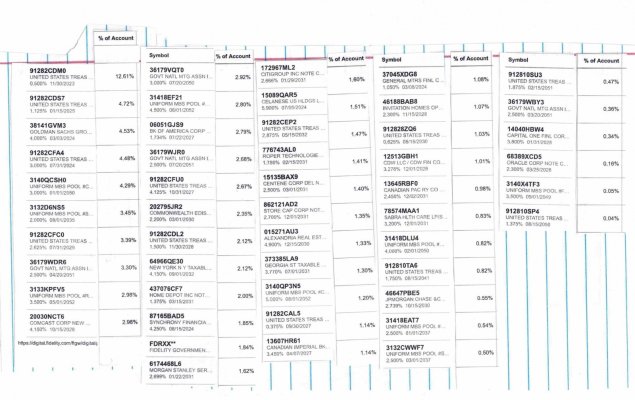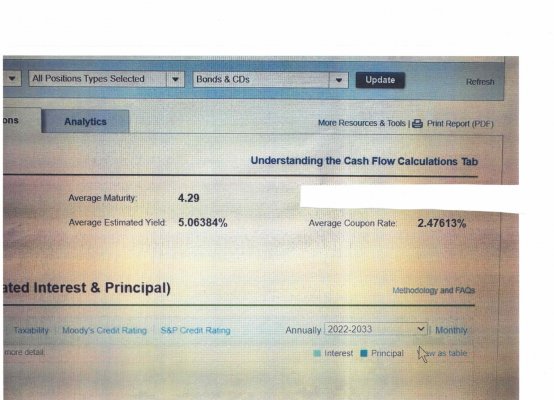There was a little discussion earlier about losing $ if buying bonds above par and the bonds are called.
What if:
Rates drop, increasing the value of a callable bond you own above par. One can only guess how much rates have to drop before a bond is called. I assume without any "make whole" clauses the bond/brokered CD would be called at par? Would it be better to "jump rather than be pushed" and sell the bond at the higher value vs. having it called away?
What if:
Rates drop, increasing the value of a callable bond you own above par. One can only guess how much rates have to drop before a bond is called. I assume without any "make whole" clauses the bond/brokered CD would be called at par? Would it be better to "jump rather than be pushed" and sell the bond at the higher value vs. having it called away?


